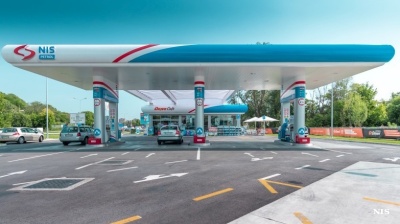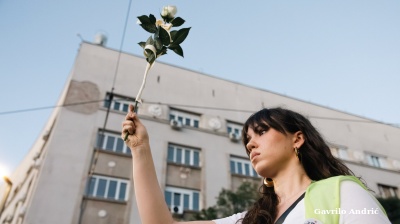French President Emmanuel Macron has wrapped up a two-day visit to Serbia, strengthening Franco-Serbian relations through a series of strategic agreements on defence, energy, infrastructure and technology.
The visit marked Macron’s second trip to Serbia in five years and the second meeting between the French President and his Serbian counterpart, Aleksandar Vucic, this year. The pair also met in Paris in May.
“France loves you as you have loved her!” Macron declared in 2019 during his last visit to Belgrade. Serbia and France have historically good relations, dating back to medieval marriage alliances and solidarity during World War I.
More recently, France has also been one of the more sympathetic powers in Europe towards Serbia's stance on Kosovo, the former Serbian province which unilaterally declared independence in 2008.
Macron criticised Pristina’s unilateral moves and reluctance to establish the Association of Serb Municipalities in the Serb-populated north. And France recently blocked a Council of Europe vote on Kosovo's membership, citing these concerns.
Economic relations are also strong. Trade between France and Serbia has seen substantial growth, tripling over the last six years. French companies have made significant investments in Serbia, which receives over 80% of French investment in the region.
Among 100 French companies operating in Serbia, most notable are tyre producer Michelin, consulting firm Egis, which is working on the development of the Belgrade Metro, and Vinci, responsible for the ongoing development of Belgrade’s Nikola Tesla Airport.
During his visit, Macron unveiled a plaque marking the completion of modernisation works at the airport. He also travelled to Serbia’s second largest city Novi Sad, where he visited the Gallery of Matica Srpska and gave a speech at the Forum of Youth and Artificial Intelligence.
France and Serbia signed 12 agreements during Macron’s visit. Among the most significant was a letter of engagement exchanged between France’s EDF and Serbia’s government to explore the development of a civilian nuclear energy program.
This move marks a significant shift for Serbia, which historically opposed nuclear power following the 1989 Chernobyl disaster. Vucic is now stressing the importance of diversifying Serbia’s energy sources, warning of potential electricity shortages in the coming decade.
What grabbed most media attention, however, was Serbia’s purchase of 12 Rafale fighter jets from France's Dassault Aviation for €2.7bn. The acquisition, long-in-the-making, is Serbia's largest military procurement since its separation from Montenegro in 2006.
The deal represents a potential shift away from Serbia’s traditional reliance on Russian defence systems. “Serbia’s choice of Rafale jets is a clear signal of our long-term alliance,” Macron stated during a press conference.
While many have interpreted the deal as a sign of Belgrade pivoting Westward, others are not so sure. Just over a fortnight ago, Serbia’s Deputy Prime Minister Aleksandar Vulin was in Moscow for a series of high-level talks.
Vulin has become a frequent flyer to Moscow. On June 10, during a previous visit, he praised Russia as a “sincere friend” and thanked Russian Foreign Minister Sergey Lavrov for supporting Serbia during a contentious UN vote on Srebrenica.
"Serbia is the only country in Europe that did not become part of the anti-Russian hysteria and did not impose sanctions on the Russian Federation," Vulin stated on August 12, highlighting Serbia’s unique position in Europe.
In response, the EU urged Serbia to reconsider its close relationship with Russia, stating that maintaining such ties is incompatible with EU values. But as long as Serbia remains dependent on Russia for gas supplies, and for its UN support on Kosovo, Belgrade is unlikely to change tune.
Following the Rafale deal, Vucic reaffirmed Serbia’s neo-nonaligned stance: “I know that [Macron] would like us to impose sanctions on Russia ... but we have not done it, and we are not ashamed of our decision.”
Serbia’s balancing act has been a hallmark of its foreign policy. The sale of French fighter jets is unlikely to change that. As Strahinja Subotic, a senior researcher at the European Policy Centre in Belgrade, told EuroNews, “Serbia will never put all of its eggs in one basket."



